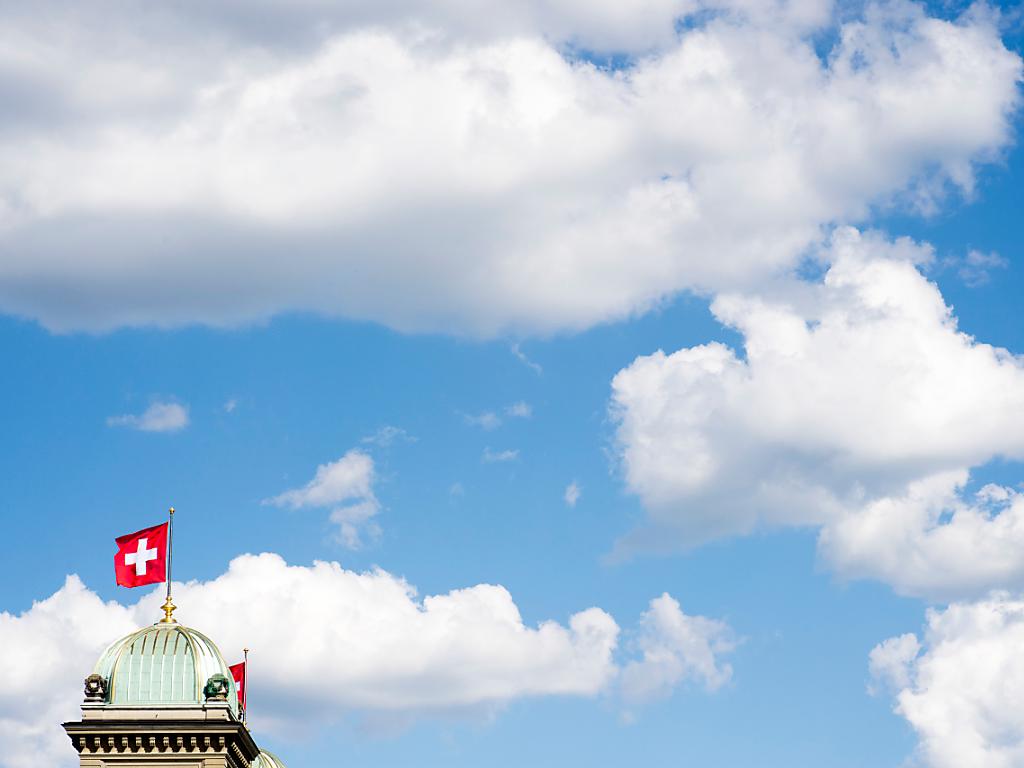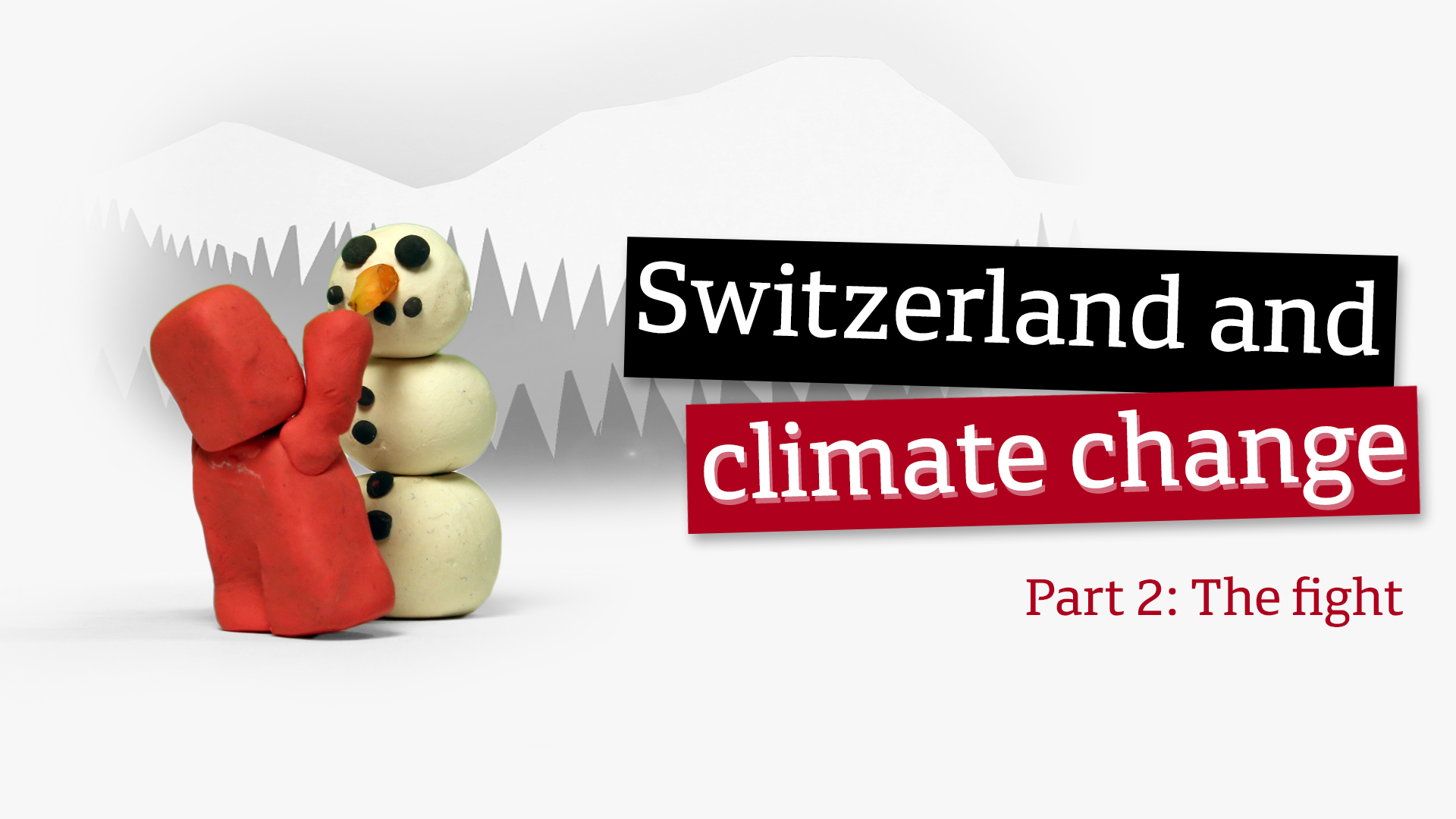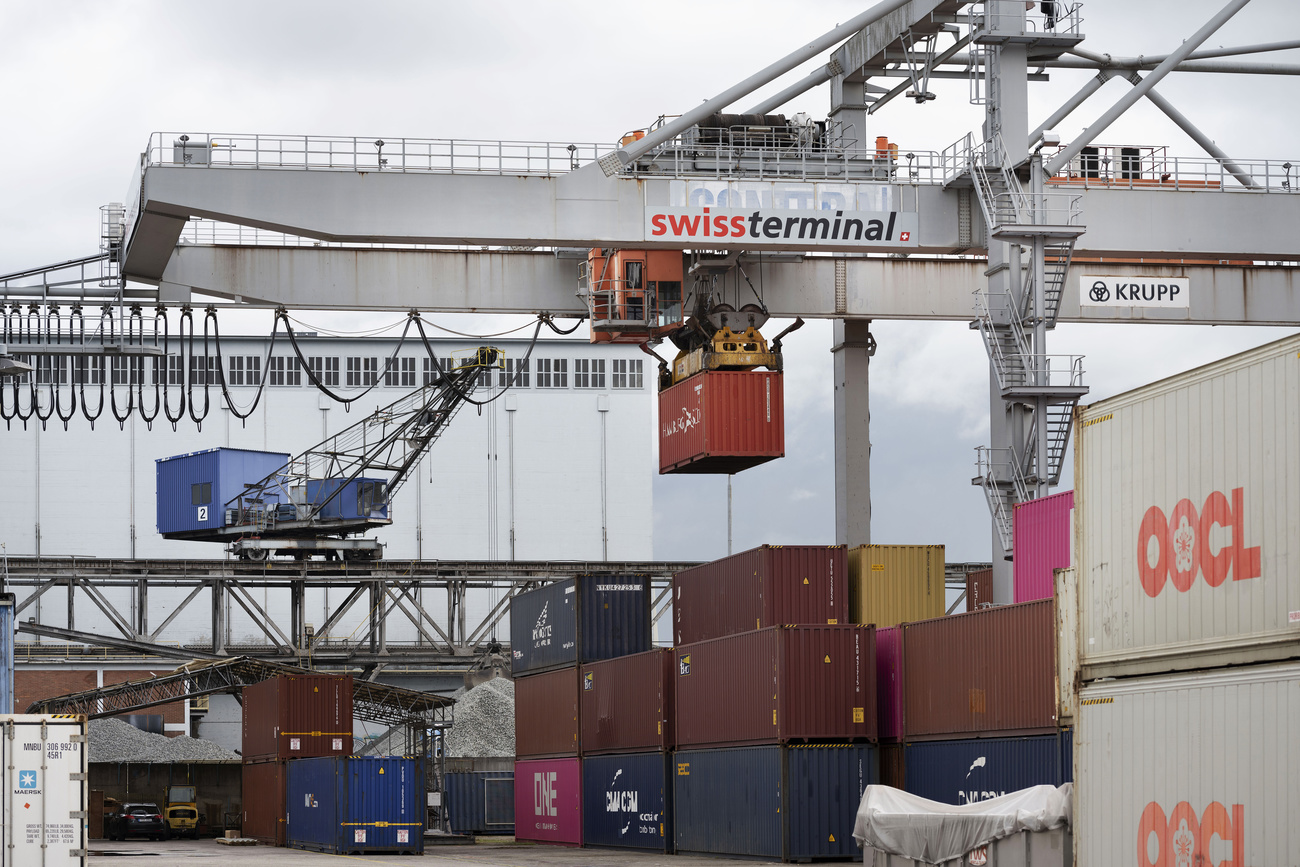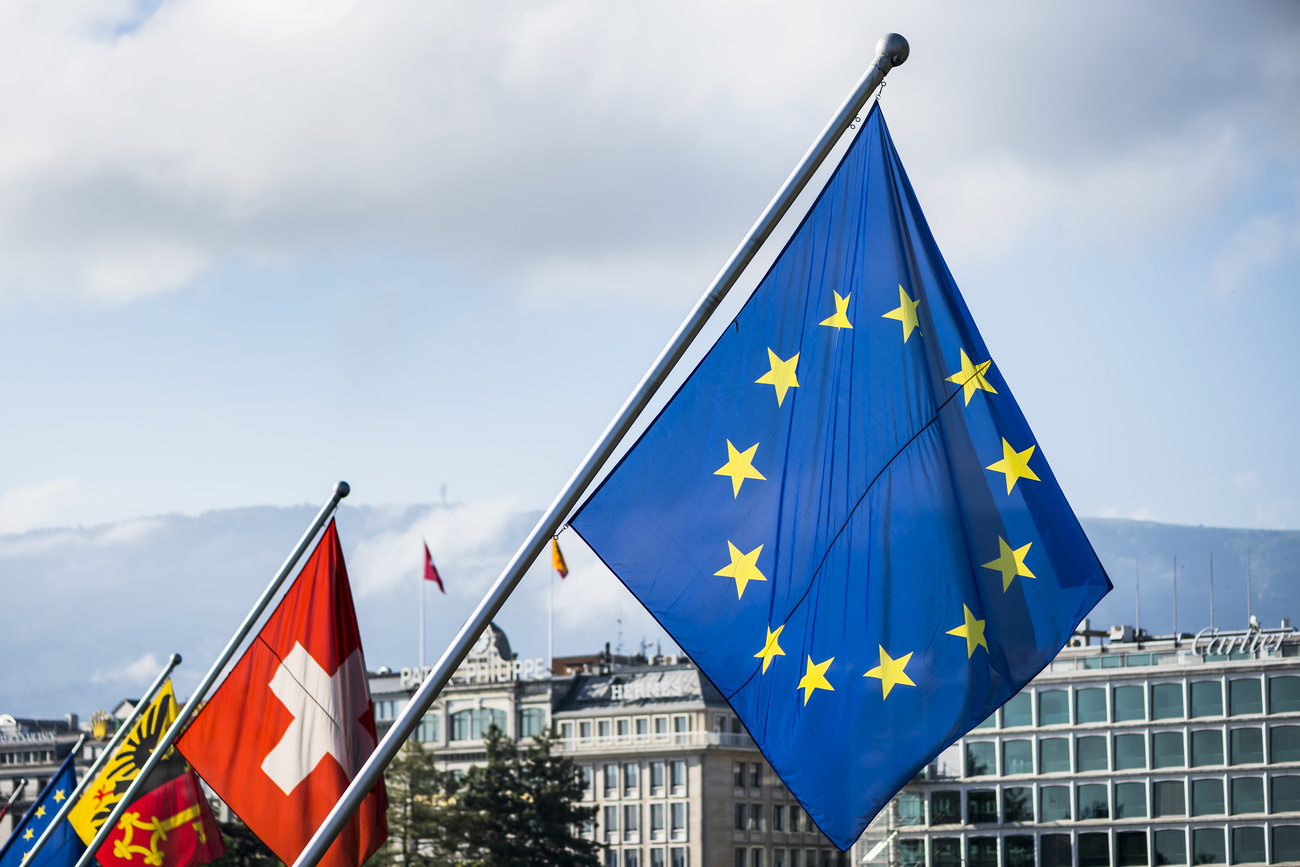
2022: Switzerland in search of itself

Climate protection, animal welfare, and tobacco advertising bans – 2022 promises to be a busy year for Swiss voters. In foreign affairs Switzerland will continue to oscillate between the glamour of consolidating its position as an international mediator and its own isolation within Europe.
Early 2022, Swiss voters will head to the polls for the first of the four traditional voting Sundays of the year. On February 13, they will have to decide on four issues: two popular initiatives, calling for bans on tobacco advertising aimed at young people and on animal testing, and two referendums, the first on an aid package for the media, and the second against the abolition of a federal tax on large companies.
Throughout the whole political year, environmental and climate protection will dominate the agenda. These issues lie at the heart of three of the four popular initiatives that are pending in parliament, and thus have the greatest chance of coming to a vote this year.
One of those will be the “Glacier Initiative”, a text demanding a complete end to greenhouse gas emissions and the use of fossil fuels by 2050. After the CO2 law was rejected last June, the argument of cost, however, could once again derail the efforts of environmental groups to accelerate the energy transition and stop Switzerland from meeting the goals of the Paris Agreement.

More
How Switzerland is trying to combat climate change
The fourth initiative, from left-wing circles, calls for a reduction in health insurance premiums for the middle class.
After pesticides comes factory farming
Agriculture, meanwhile, is gearing up for another fierce battle at the ballot box. Like the two pesticide initiatives that were put to a referendum –and rejected – in 2021, the initiative against mass animal husbandry also sunders farmers into two camps. The majority of those surveyed fear that the price of Swiss meat would skyrocket if the initiative were accepted, as it would lay down strict requirements for livestock production.
On the other side are farmers who advocate for more environmentally friendly and humane methods. They are backed by environmental organisations that decry the absurdity of importing hundreds of thousands of tonnes of animal feed from Brazil each year, hence exacerbating the destruction of the rainforest.

More
Switzerland’s economic outlook for 2022: what lies ahead
Swiss voters will also vote on an initiative against urbanisation of the countryside, which aims to limit construction outside designated building zones. Each year, around 2,000 new buildings are erected outside these zones, contributing to urban sprawl. This has long been denounced by associations for the protection of rural areas. The topic strikes a chord with the Swiss. Nearly ten years ago, voters surprisingly approved an initiative aimed at dramatically curbing the construction of new second homes.
Trench warfare on the left
The political parties are also honing their weapons ahead of federal elections, scheduled for 2023. The fight for dominance within the left is likely to come to a head. As the country’s fifth-strongest political force, with 13.2% of the electoral vote, according to the Swiss Broadcasting Corporation’s latest election barometer, the Green Party now overtly has its eye on one of the two cabinet seats held by their Social Democrat allies.
As a confirmation of this rivalry, both parties simultaneously announced last November the launch of almost identical initiatives for the establishment of a climate fund.
The Social Democrats’ next move will be to outdo their Green rivals on one of their favourite topics – pensions. They have already announced their support for the referendum launched by the Swiss Federation of Trade Unions against the latest reform of old-age and survivors’ insurance, which raised the retirement age for women from 64 to 65. A vote could take place in autumn 2022 – just one year ahead of the federal elections.

More
Vote results for November 28, 2021
Meanwhile, the right-wing Swiss People’s Party, in pole position with 26.6% of the electoral vote, no longer has its main issue, immigration, at the top of its political agenda. It is expected to continue to capitalise on its opposition to the pandemic health measures to mobilise its voter base – despite the precarious situation in hospitals and two ballot-box defeats on a Covid-19 bill in recent months.
The country’s largest party will soon attack public broadcasting once again, with an initiative that aims to cut the license fee by almost half. In 2018, the party failed to gain popular support for its “No Billag” initiative, which sought to scrap the fee entirely. The new proposal looks even more dangerous for the Swiss Broadcasting Corporation, of which SWI swissinfo.ch is part of – not least because the corporation no longer enjoys unconditional support from the other governing parties.
A new start on the European question
Switzerland’s foreign policy situation is characterised by a certain irony. On one hand, the country is hoping to enter the major diplomatic arena with its candidacy for the United Nations Security Council, and is keen to provide its good offices amid the geopolitical tensions between Russia, China and the United States. On the other, it is blocked on a key issue – its relations with the European Union.

More
Swiss reject framework agreement deal with EU
In 2022, the unresolved European question will remain the Gordian knot of Swiss foreign policy. Last May, the cabinet broke off the seven-year-long negotiations on the framework agreement with the EU. Now it wants to return to the negotiating table.
But things have got off to a bad start. Disagreements arose after a meeting last November, between Swiss Foreign Minister Ignazio Cassis and Maros Sefcovic, the Vice-President of the European Commission, who is in charge of Swiss relations. The EU expected Switzerland to present a roadmap for the negotiations at the next meeting at the World Economic Forum (WEF) in Davos in January, something the Swiss side was not prepared to do. The fact that the WEF meeting has now been postponed until the summer – because of the pandemic, of course –complicates the process. For the moment it looks unlikely Switzerland and the EU will find common ground.

More
The arts in Switzerland: what to watch for in 2022
Yet the clock is ticking. The EU is threatening to treat Switzerland as a third country in the Horizon Europe research programme, thereby damaging the nation’s status as a research hub. In November, the foreign affairs committee of the House of Representatives launched the idea of buying its way out of the problem with an additional CHF1 billion ($1.09 billion) in cohesion funding. This was an act of desperation that failed to gain a majority, but it clearly demonstrated the prevailing helplessness on the Swiss side. Finance Minister Ueli Maurer commented that the proposal would only make Switzerland look foolish in the EU’s eyes.
The cabinet has now mandated the former head of the State Secretariat for Migration, Mario Gattiker, to analyse the legal differences relating to the free movement of people and to sound out which measures harmonising Swiss law with EU legislation would garner majority support at home. This can be taken as evidence of the cabinet’s much-talked-about strategy of clarifying the different sticking points separately for each sectoral agreement – an approach that is unlikely to cut much ice in Brussels.
Dancing on the world stage
Beyond European politics, however, 2022 could be a brilliant year for Swiss diplomacy. A Ukraine summit will be hosted in Lugano, putting the city on a par with London and Toronto. Cassis plans to receive the Ukrainian head of state Volodymyr Selensky, among other leaders, in his home canton. This is also a chance for the Swiss Foreign Minister to burnish his image one year before the elections, at a time when his approval rating is at a low. However, the event, which is intended to bolster the reform process in Ukraine and its independence, will be held under the shadow of Russian troops gathering on the Ukrainian border at the end of the year.

More
Need a diplomatic messenger? Switzerland is eager to help
Switzerland’s candidacy for the Security Council is considered foolproof. In June, the UN General Assembly in New York will elect five of the ten non-permanent members for 2023 and 2024. There is only one other candidate, Malta, for the two seats available to Western States. The undertaking has already cleared all the domestic political hurdles; only the conservative Swiss People’s Party is still opposed to the candidacy, which was put forward ten years ago, arguing that it violates Swiss neutrality.
Coronavirus, China and a beacon of hope
Covid-19 will continue to dominate the agenda of international organisations in Geneva in 2022 – primarily the World Health Organization, which is striving to lead the world out of the pandemic, while facing vociferous demands for reform. An important forthcoming event is the meeting of the member states in May, to pave the way for a new pandemic treaty. The World Trade Organization is also a key player in the fight against pandemics; this is where discussions on patent waivers for life-saving vaccines and treatments are taking place.
Human rights remain a central concern in Geneva. The main questions in the new year are: How will the UN Human Rights Council deal with the alarming situations in Afghanistan, Myanmar and Syria? And will European governments dare to exert more pressure on China? UN human rights chief Michelle Bachelet is still waiting for Beijing to agree on terms for her to visit Xinjiang province – while the Chinese government continues to deny the existence of forced labour.
Lastly, the International Committee of the Red Cross, Switzerland’s most famous humanitarian organisation, has appointed a woman president for the first time. Mirjana Spoljaric Egger will take office in October 2022.
Still to be discussed is the matter of decision-making power. That the cabinet should be able to determine single-handedly whether to subscribe to sanctions – or even to authorise a military intervention – contravenes Swiss democratic processes, in which parliament and the people have a strong say. But this would only be a problem in exceptional cases, runs the official line, as in most situations Switzerland could base its decision on established positions. And if not, officials argue, the country could always abstain.
The cabinet wants to test the decision-making process next autumn. If it needed to act fast, it would at least want to inform the leadership of the foreign affairs committees of both chambers. This arrangement is also not without a certain irony: the president of the lower chamber’s committee during the period in question will probably be Franz Grüter of the Swiss People’s Party – one of the fiercest critics of the whole candidacy.

In compliance with the JTI standards
More: SWI swissinfo.ch certified by the Journalism Trust Initiative



























You can find an overview of ongoing debates with our journalists here . Please join us!
If you want to start a conversation about a topic raised in this article or want to report factual errors, email us at english@swissinfo.ch.